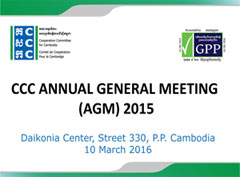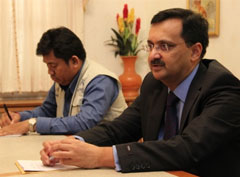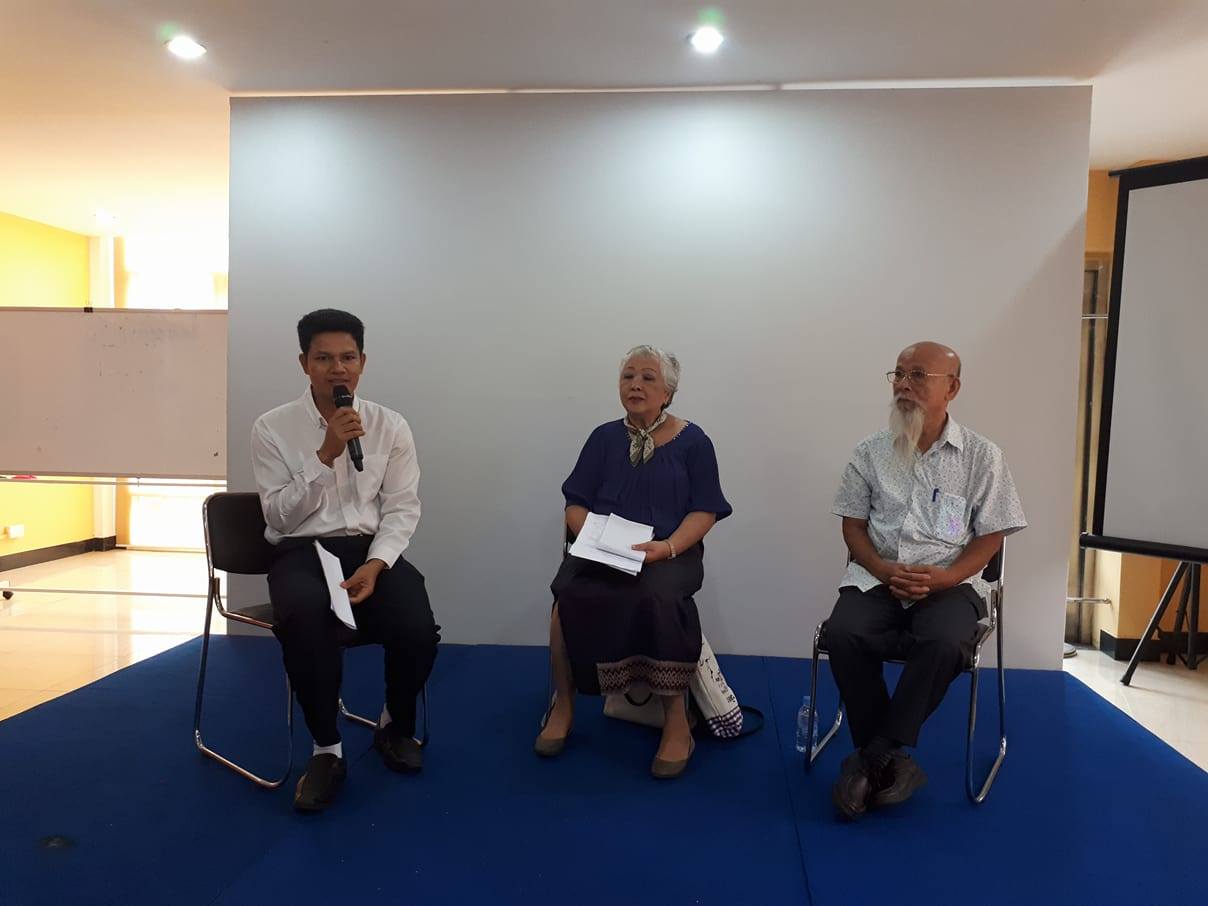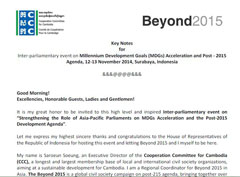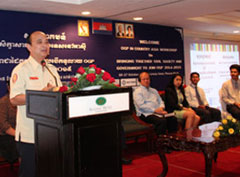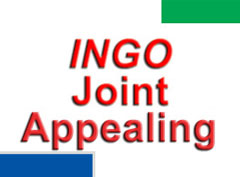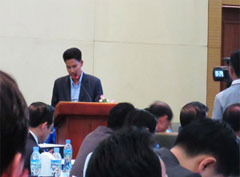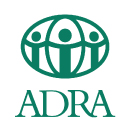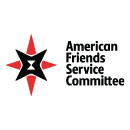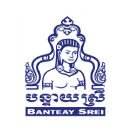Joint Statement of Civil Society Organizations on the adoption of the Law on Associations and Non-Governmental Organizations
Phnom Penh -18 August : We, the undersigned civil society organizations (CSOs) remain deeply concerned about the Law on Associations and Non-Governmental Organizations (LANGO) because the draft law did not take into consideration since 2011 the concerns raised by concerned stakeholders. The process that characterized its adoption and the content of this law undermine democracy and could severely impair the exercise of the rights to freedom of association, freedom of assembly and freedom of expression.
Two consultations were conducted by the Ministry of Interior in 2011 with few inputs and concerns taken into consideration in the 4th version. Since then, the Royal Government of Cambodia refused to make the new draft law public and consult with CSOs. The 5th and final version of the LANGO which was officially released three days before the adoption by the National Assembly, added further controversial provisions. The workshop conducted by the National Assembly with CSOs on 8 July 2015, just few days before the scheduled vote meeting, was a nominal consultation in terms of time and process. Many questions and concerns from CSOs remained unanswered.
The LANGO contains provisions that unlawfully restrict freedom of association, assembly and expression, as well as the right to participate in public life. More than 10 articles of the LANGO need to be carefully and fully reviewed, and several need to be rephrased or reworded. The following articles are of particular concern:
- Article 8 provides arbitrary authority to the Ministry of Interior to deny the registration of a domestic association or NGO, including on the broad ground of deeming that the purpose and objective of an association or NGO ”could adversely affect public security, stability and order, or generate a threat to national security, national unity, or the culture, traditions and good customs of Cambodian national society”;
- Article 9 of the LANGO imposes mandatory registration for all domestic associations and NGOs. Onerous registration requirements are stated in other provisions, including article 6. Organizations that are not registered are not allowed to conduct any activity. The law also criminalizes unregistered groups conducting activities. This is a direct violation of Article 22 of the International Covenant on Civil and Political Rights (ICCPR);
- Article 24 requires all domestic NGOs, foreign associations and foreign NGOs to be neutral toward all political parties in the Kingdom of Cambodia, under the threat of de-registration. This constitutes a direct violation to the right to freedom of expression as guaranteed in Article 19 of the ICCPR and freedom of opinion as provided for in
- Article 41 of the Constitution;
- Article 35 contains vague grounds for termination of memorandum of understanding entered with foreign associations and NGOs. This allows subjective interpretation, which may lead to abuses in cases of activities critical towards the authorities.
Having a bad law is worse than having no law. We reaffirm that the LANGO is unacceptable, and by impairing the capacity of civil society to operate in Cambodia will ultimately have a damaging impact on all Cambodian citizens.
Other Latest News
CCC ANNUAL GENERAL MEETING (AGM) 2015
The AGM will be held with the theme: “” .The LANGO was promulgated by the King in August 2015 and until now it remains unclear on how it will be implemented as its implementation guideline has yet developed. SDGs were adapted by heads of states of UN, during the 70th UN General Assembly in New York. SDGs are a one holistic agenda, completing. . .
CCC leads to deliver a joint statement to embassies
Phnom Penh (January 23, 2014) – Cooperation Committee for Cambodia (CCC) led an appeal to the ambassadors of four South-East Asian countries to support a demand for the unconditional release of 23 garment workers and human rights activists unconstitutionally imprisoned since January 3.
Beyond 2015 on Sustainable Development Goals (2016 - 2030)
Beyond 2015 is a global civil society campaign on post-2015 agenda, bringing together over 1000 organizations from over 130 countries.
Representatives from Government and CSOs Meet, Discuss on Open Government Partnership (OGP)
Phnom Penh (October 16-17, 2014) –Around 150 senior representatives from Indonesia, the Philippines, Vietnam, and as well as Cambodia are attending the two-day workshop on Open Government Partnership which focuses on the following objectives . . .
INGO Joint Appealing
សេចក្តីអំពាវនាវរបស់អង្គការអន្តរជាតិគោរពជូន ឯកឧត្តម ប្រាក់ សុខុន ទេសរដ្ឋមន្រ្តី រដ្ឋមន្រ្តីក្រងសួងការបរទេស និងសហប្រតិបត្តិការកម្ពុជា។ INGO appealed to H.E Prak Sokhonn, Senior Minister and Minister of Foreign Affairs and International Cooperation Royal Government of the Kingdom of Cambodia.
CSOs’ remarks on Outputs of Annual Work Plan and Budget (AWPB) 2016 of NP-SNDD 2015-2017
Sihanoukville, 15-16 December 2015 : Open remarked by Mr.Soeung Saroeun, Executive Director of Cooperation Committee for Cambodia (CCC) ....


